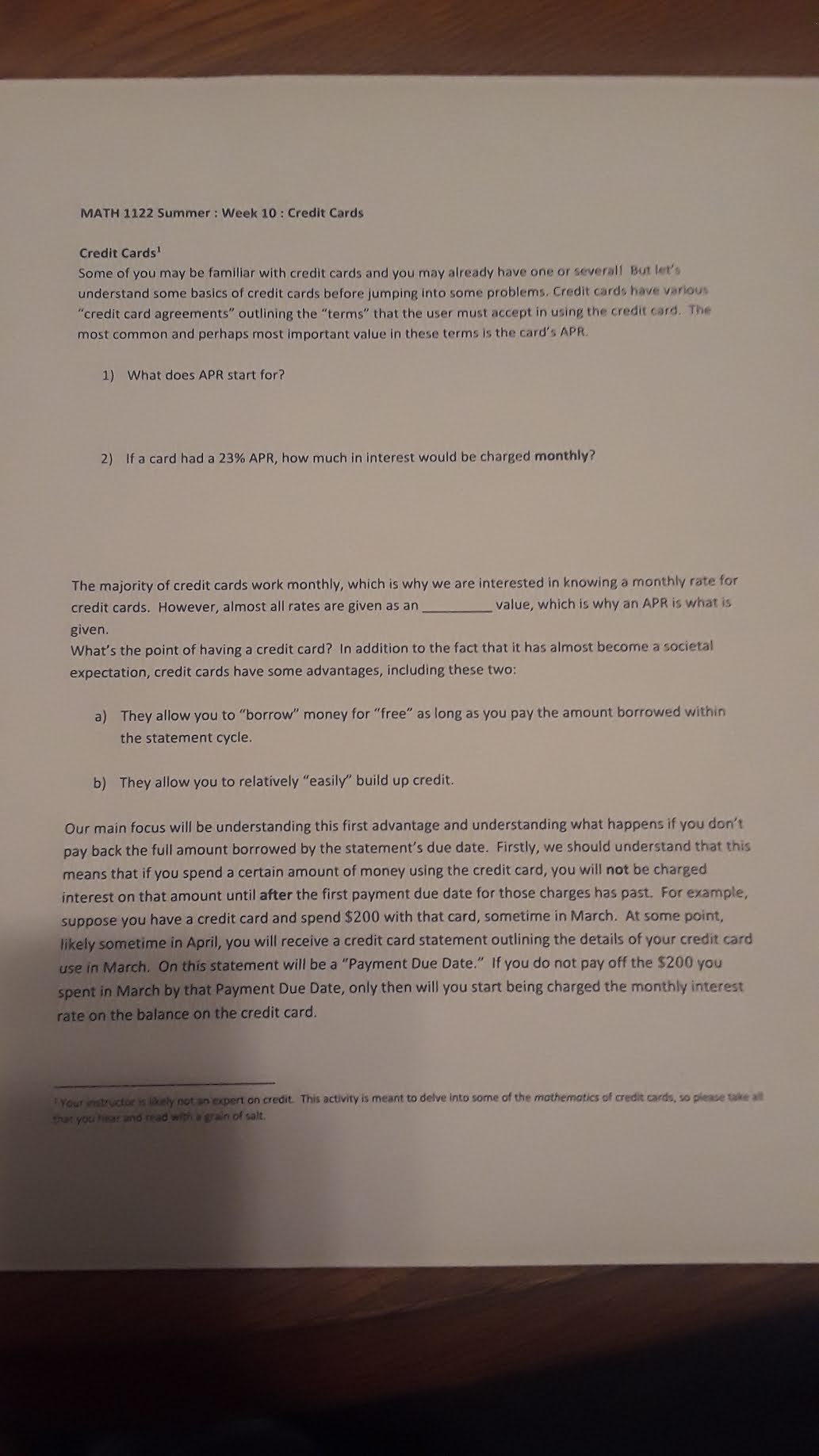
MATH 1122 Summer : Week 10 : Credit Cards Credit Cards Some of you may be familiar with credit cards and you may already have one or severall But let's understand some basics of credit cards before jumping into some problems. Credit cards have various "credit card agreements" outlining the "terms" that the user must accept in using the credit card. The most common and perhaps most important value in these terms is the card's APR. 1) What does APR start for? 2) If a card had a 23% APR, how much in interest would be charged monthly? The majority of credit cards work monthly, which is why we are interested in knowing a monthly rate for credit cards. However, almost all rates are given as an value, which is why an APR is what is given. What's the point of having a credit card? In addition to the fact that it has almost become a societal expectation, credit cards have some advantages, including these two: a) They allow you to "borrow" money for "free" as long as you pay the amount borrowed within the statement cycle. b) They allow you to relatively "easily" build up credit. Our main focus will be understanding this first advantage and understanding what happens if you don't pay back the full amount borrowed by the statement's due date. Firstly, we should understand that this means that if you spend a certain amount of money using the credit card, you will not be charged interest on that amount until after the first payment due date for those charges has past. For example, suppose you have a credit card and spend $200 with that card, sometime in March. At some point, likely sometime in April, you will receive a credit card statement outlining the details of your credit card use in March. On this statement will be a "Payment Due Date." If you do not pay off the $200 you spent in March by that Payment Due Date, only then will you start being charged the monthly interest rate on the balance on the credit card. Your structurely not an expert on credit. This activity is meant to delve into some of the mathematics of credit cards, so please take a that you let and read with gran of salt







